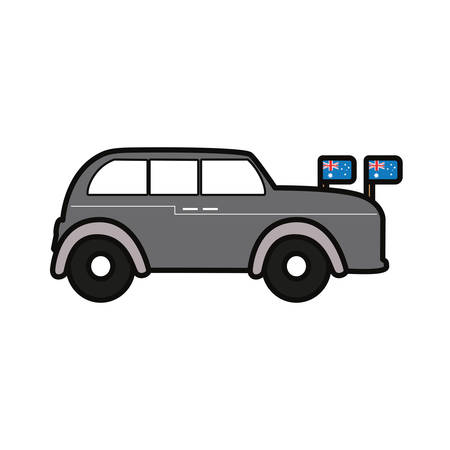Introduction to Brexit and the UK Motor Insurance Sector
Brexit, the United Kingdom’s historic decision to leave the European Union, has had a significant impact on various aspects of life and business across the country. Voted for in 2016 and officially enacted in January 2020, Brexit marked a major change in the UK’s political and economic relationships with its European neighbours. This shift has introduced new complexities and uncertainties, especially in sectors reliant on cross-border cooperation and regulation. The UK motor insurance industry is one such sector that has been directly affected by these changes. Traditionally, UK car insurance operated under EU regulations that allowed for streamlined processes, particularly when it came to making claims involving incidents both within the UK and across Europe. With Brexit now a reality, both insurers and policyholders have had to adapt to a new set of rules and expectations. This article explores how these changes have shaped the car insurance claims process in Britain, what challenges drivers now face, and what practical steps can help families stay protected on the road.
2. Changes to Claims Processes Post-Brexit
Since Brexit, UK motorists have experienced several changes in the car insurance claims process. The departure from the European Union has led to both administrative adjustments and regulatory shifts that impact how claims are handled, particularly for incidents occurring abroad or involving non-UK parties. Understanding these changes can help families avoid unnecessary delays or confusion when making a claim.
Key Administrative Adjustments
One of the most notable changes is the end of the automatic recognition of insurance documents such as the Green Card across Europe. UK drivers now need to ensure they carry a valid Green Card when driving in EU countries, as proof of insurance. Claims involving foreign vehicles may also require more documentation, and communication between insurers can take longer due to new data-sharing regulations.
| Aspect | Pre-Brexit | Post-Brexit |
|---|---|---|
| Green Card Requirement | Not required within EU | Required for EU travel |
| Claims Processing Time (Abroad) | Streamlined via EU agreements | Potentially longer due to new procedures |
| Data Sharing Between Insurers | Simplified under GDPR alignment | May face delays due to new compliance checks |
Regulatory Shifts Affecting Motorists
The Motor Insurance Bureau (MIB) no longer acts as a central point for handling cross-border claims under the EU’s Fourth Motor Insurance Directive. This means that if you are involved in an accident with an EU-registered vehicle, you might need to contact the foreign insurer directly rather than relying on a UK-based representative. Additionally, compensation schemes may differ, so it’s important for families to check their policy details before travelling.
Summary of Post-Brexit Claim Challenges
- More paperwork: Additional forms and evidence may be required, especially for accidents abroad.
- Longer resolution times: International claims can take longer due to lack of shared systems and increased regulatory checks.
- Differing standards: Compensation processes and legal standards may vary between countries, potentially affecting settlement amounts.
Practical Tips for Families
If you’re planning a family trip to Europe or dealing with an accident involving a non-UK vehicle, double-check your insurance documents, know how to contact your insurer in case of an incident, and allow extra time for any claims involving cross-border elements. These simple steps can help make a stressful situation a bit smoother for you and your loved ones.

3. Cross-Border Incidents: Green Cards and European Travel
Since Brexit, one of the most noticeable changes for UK drivers taking their cars abroad is the reintroduction of Green Cards. Before the UK left the EU, motorists could travel freely across Europe with their car insurance automatically recognised in most countries. Now, if you plan to drive your vehicle in Europe—whether for a family holiday or business—you need to carry a physical Green Card as proof of valid insurance. This document must be obtained from your insurer ahead of time and covers you for driving in EU and EEA countries, as well as Switzerland.
The process for getting a Green Card is straightforward but requires some forward planning. Most insurers recommend requesting it at least three weeks before your trip, and you’ll need to have it printed on white or green paper. If you don’t have this document when travelling, you risk fines or even having your car seized at borders or by local authorities in some countries. It’s also important to check if your policy includes breakdown cover or whether additional European cover is needed.
When it comes to making an insurance claim for incidents that happen outside the UK, things can get a bit more complicated post-Brexit. The claims process often takes longer because coordination between UK insurers and their European counterparts may not be as seamless as before. If you’re involved in an accident while abroad, you should collect all possible evidence—photos, witness details, and police reports—and notify your insurer as soon as possible. Settling these claims might involve more paperwork and patience due to different legal systems and potential language barriers.
For families planning a road trip through France or Spain, or anyone regularly crossing into Ireland from Northern Ireland, being aware of these changes is crucial. Ensuring you have the right documentation and understanding the practical impact on claims can help avoid unnecessary stress during your travels.
4. Impact on Claims Costs and Payouts
Brexit has introduced a range of new financial pressures that directly affect the cost of car insurance claims in the UK. Policyholders are seeing these impacts most clearly in three key areas: currency fluctuations, tariffs, and supply chain disruptions. All these factors combine to influence not only the cost of repairs and replacement parts but also the overall payouts from insurers.
Currency Fluctuations
Since the Brexit referendum, the value of the pound sterling has experienced significant volatility against the euro and US dollar. Many car parts used in UK repairs are imported from Europe or beyond, so a weaker pound means it costs insurers more to source these components. This additional expense is often reflected in higher repair bills and ultimately affects how much is paid out for claims.
Tariffs and Trade Barriers
With the end of frictionless trade between the UK and EU, new tariffs and customs checks have been imposed on imported vehicle parts. Even when specific parts are exempt from direct tariffs, administrative fees and delays at ports add to overall costs. For insurers, this translates into more expensive claim settlements, especially for newer vehicles or those requiring specialist European parts.
Supply Chain Disruptions
The introduction of border checks and changes in trading arrangements have disrupted established supply chains. Delays in sourcing essential repair components can mean longer wait times for customers while their vehicles are off the road. For insurance companies, increased storage fees for undelivered cars or courtesy vehicle costs may arise, further inflating claim expenses.
How Brexit-Related Factors Influence Claim Costs
| Factor | Impact on Repair Costs | Effect on Claim Payouts |
|---|---|---|
| Currency Changes | Imported parts cost more due to weaker pound | Payouts increase to cover higher repair invoices |
| Tariffs & Customs Fees | Extra charges added to part prices | Total claim amounts rise accordingly |
| Supply Chain Delays | Repairs take longer; storage/courtesy car costs go up | Larger payouts required for extended services |
Looking Ahead
For families relying on their cars every day, these changes can mean higher premiums and potentially longer waits after an accident. It’s important to review your policy terms carefully and consider providers with strong local supply networks to help minimise disruptions caused by Brexit-related challenges.
5. Consumer Advice for Navigating the New Claims Landscape
The post-Brexit car insurance environment in the UK has brought about some important changes, making it essential for drivers—especially families—to stay informed and protected when making a claim. Here are some practical, family-friendly tips to help you navigate this new landscape confidently.
Check Your Policy Details Carefully
Before you even need to make a claim, take the time to review your current insurance policy. Pay particular attention to:
- European cover: If you drive abroad, check whether your policy still provides adequate coverage in EU countries and whether you need a Green Card.
- Breakdown assistance: Make sure roadside recovery and onward travel options are included, especially if you’re planning family trips across the Channel.
- Excess amounts and exclusions: Understand what’s covered, what isn’t, and how much you’ll need to pay if you make a claim.
Be Prepared When Making a Claim
If you do need to file a claim, keep these tips in mind to make the process smoother and less stressful:
- Keep documentation handy: Always have your insurance certificate, driving licence, and accident details on hand. Take photos at the scene if possible.
- Contact your insurer quickly: Most insurers have strict timeframes for reporting incidents. Prompt communication can prevent delays and misunderstandings.
- Be thorough with information: Provide accurate and detailed accounts of any incident—this helps avoid disputes or rejected claims later on.
Know Where to Seek Help
If youre unsure about anything—be it cross-border coverage or unfamiliar paperwork—don’t hesitate to seek support. Trusted sources include:
- Citizens Advice: Offers free guidance on consumer rights and insurance queries.
- Your local broker: Brokers often have up-to-date knowledge of Brexit-related changes affecting your policy and can explain things in plain English.
- The Financial Ombudsman Service: For help resolving disputes if your insurer refuses a claim unfairly.
Family Tip: Teach Young Drivers
If you have young drivers in your household, talk them through these new rules. Make sure they know what documents to carry, how to react after an accident abroad, and who to call for help. A little preparation now can save everyone stress down the road.
Staying Ahead
The insurance landscape may be changing, but by keeping informed and proactive, British families can continue enjoying safe and stress-free journeys both at home and abroad.
6. Future Outlook
As we look ahead, the long-term effects of Brexit on the UK car insurance claims process remain a moving target. The regulatory landscape is still evolving, with ongoing discussions about further divergence from EU standards and the potential for new trade agreements. This means that both insurers and motorists may need to brace themselves for more changes in how claims are handled, especially when accidents involve travel across borders or foreign drivers visiting the UK.
For UK families, staying informed will be key. It’s wise to regularly review your car insurance policy documents and keep up to date with any new guidance from your provider—especially if you plan to drive abroad. Families should also be prepared for possible shifts in premiums or requirements for additional cover, particularly as the market reacts to supply chain challenges and changes in risk assessment brought on by Brexit-related disruptions.
In practical terms, having thorough documentation in case of a claim, understanding what your policy covers (and doesn’t), and maintaining open communication with your insurer are all good habits to adopt. By taking these proactive steps, UK households can better protect themselves against uncertainty and ensure smoother claims experiences, whatever further changes Brexit may bring to the road ahead.

